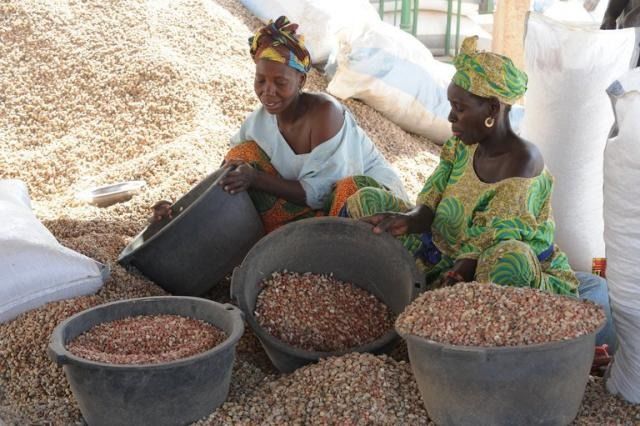Training program in China helps upgrade Senegal's peanut industry

By Alimat Aliyeva
A China-Senegal international training course on the complete peanut industry chain was recently held in Qingdao, Shandong Province, eastern China — marking another milestone in deepening agricultural cooperation between the two countries, Azernews reports, citing foreign media.
Launched on July 6, the 15-day program brought together 14 Senegalese participants, including researchers, government officials, and entrepreneurs. The focus was on sharing China's advanced experience in peanut cultivation, such as water-efficient irrigation methods, integrated pest and disease control, and modern field management techniques.
"We've been truly impressed by this training, which has strengthened our confidence in modernizing the entire peanut value chain in Senegal," said Ibrahima Sarr, Director of the Senegalese Institute for Agricultural Research (ISRA).
Although Senegal is one of the top peanut-producing countries in West Africa — thanks to its vast land resources and rich peanut germplasm — local productivity remains low and quality inconsistent. This is largely due to frequent droughts, outdated farming practices, and recurring pest and disease issues. Processing capabilities also remain underdeveloped, according to ISRA expert Aliou Faye.
China’s Shandong Province is a national powerhouse in the peanut industry — ranking second in planting area and first in both processing volume and exports. The Shandong Peanut Research Institute (SPRI), a key player in this success, has developed several high-yield, drought-resistant peanut varieties.
“SPRI combines strong research capacity with practical field applications,” said Song Jinghua, head of the institute. “We’re proud to see our innovations now benefiting farmers in other countries.”
China and Senegal have maintained a long-standing partnership in agriculture. According to Senegalese Ambassador to China Ibrahima Sory Sylla, cooperation between SPRI and ISRA began back in 1988. Just a year later, Senegal introduced a high-performing, drought-tolerant Chinese peanut variety, which has since become a staple among local farmers.
In recent years, top Senegalese officials — including ministers of agriculture, ambassadors, and even presidents — have made multiple visits to Shandong to promote deeper cooperation in agricultural technology.
“By advancing the peanut industry chain, Senegal can not only boost its agricultural sector but also stimulate growth in related areas like food processing, logistics, and e-commerce, all while creating new jobs,” Sarr noted.
The training course also highlighted the broader potential of "agro-diplomacy" — using agricultural knowledge and innovation as a bridge for sustainable development and stronger international ties.
Here we are to serve you with news right now. It does not cost much, but worth your attention.
Choose to support open, independent, quality journalism and subscribe on a monthly basis.
By subscribing to our online newspaper, you can have full digital access to all news, analysis, and much more.
You can also follow AzerNEWS on Twitter @AzerNewsAz or Facebook @AzerNewsNewspaper
Thank you!
